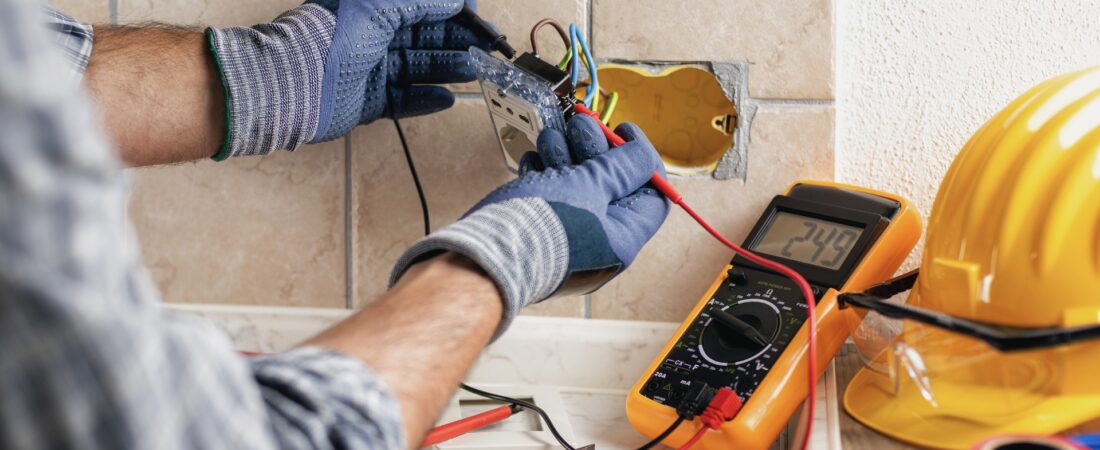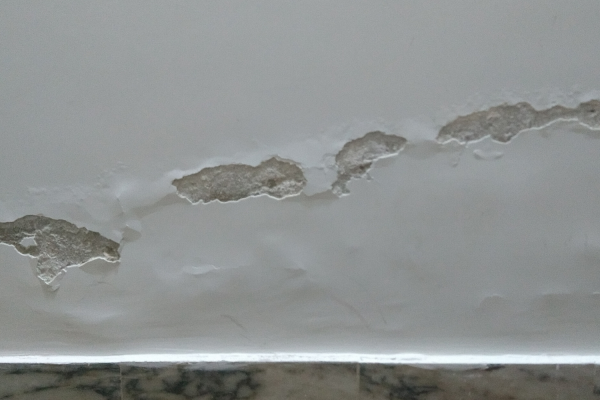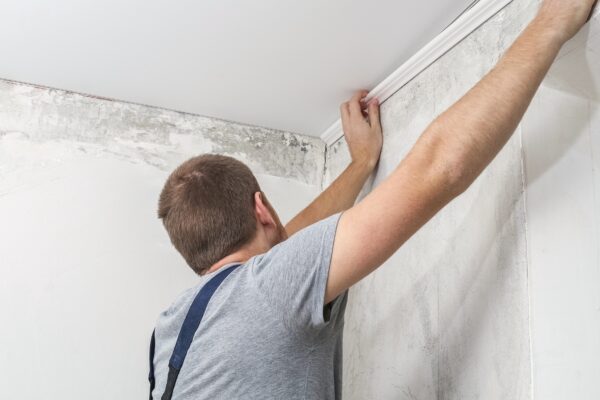As a landlord, meeting your legal requirement for electrical safety checks makes sure your property is safe and compliant.
An Electrical Installation Condition Report (EICR) identifies any need for investigative or remedial work and helps you meet electrical safety standards.
You’re required to have inspections done within the period specified in the report and must supply a copy to your tenants.
This guide explains everything you need to know to manage your electrical safety obligations as a landlord and keep your property and tenants safe.
- What is an EICR?
- When do you need to provide tenants with an EICR?
- What does a valid EICR include?
- How long does an EICR certificate last?
- Is there a fine for not having an EICR certificate?
- What if a property fails the electrical inspection?
- Electrical safety regulations in Scotland, Wales and Northern Ireland
Make sure your tenants and property are fully protected by booking your electrical safety inspection today.
Order Your EICR
What is an EICR?
An Electrical Installation Condition Report (EICR) is a formal document that assesses the safety of a property’s electrical systems.
Previously known as Fixed Wire Testing, the EICR examines wiring, sockets, fuse boxes (also called consumer units), and other fixed electrical components to confirm they’re safe and comply with current standards.
For landlords, having a valid EICR is essential to prove that the electrical systems in your property are in proper working order before letting it out.
The rules around EICRs came into effect in June 2020, initially requiring all new tenancies to have a valid report. From 1st April 2021, the requirement was rolled out to all tenancies, whether new or existing.
Which rented properties do the electrical safety regulations apply to?
The Electrical Safety Regulations apply to any property where a private tenant lives as their main or only home and pays rent. This includes assured shorthold tenancies (ASTs) and licences to occupy, as well as Houses in Multiple Occupation (HMOs).
However, there are some exceptions. The regulations don’t apply to: social housing, lodgers, tenants with a lease of 7 years or more, student halls of residence, hostels, refuges, care homes, hospitals, hospices, or other accommodation related to healthcare.
When do you need to provide tenants with an EICR?
Landlords must provide tenants with a copy of the report at:
- the beginning of the tenancy
- upon issuing a new contract (incl. renewals)
- and upon request from any tenant, within 28 days of receiving a written request
Do I need a new EICR for a new tenant?
If your EICR is still within its validity period, you don’t need a new one just because you have a new tenant.
Just make sure the report is up to date and that there haven’t been any major changes or issues with the electrical system since the last check.
You might also be interested in…
- All You Need to Know About Right to Rent Checks
- Guide to the Renters’ Rights Bill for Landlords 2025
- What Are the EPC Requirements for Landlords?
- Renting to Students: Guarantors, Advance Payments, HMO licence and more
- Holding Deposit, Tenancy Deposit, Rental Fees: Everything You Need to Know
What does a valid EICR include?
A valid EICR must include:
- the outcomes of the inspection and test, categorised as either satisfactory or unsatisfactory
- if applicable, a list of observations requiring remedial work or further investigation
- the deadline for the next inspection and test
How long does an EICR certificate last?
Once the EICR is completed, it’s valid for up to five years.
After that, you’ll need to have it renewed. Don’t forget, you must provide a copy to any existing tenants within 28 days of receiving the new report.
Book your EICR or PAT with us today and have peace of mind knowing you’ve done your part in keeping your property safe.
Is there a fine for not having an EICR certificate?
Yes, landlords who fail to carry out an EICR (or any recommended repairs) before starting a new tenancy can face fines of up to £30,000.
Local authorities are responsible for enforcing these rules under the Housing Act 2004. If you don’t carry out the necessary repairs or improvements listed in the report, they can take action on your behalf.
Once you receive a notice of remedial action, you have 28 days to complete the required work. In urgent situations, a shorter timeframe may be given.
What if a property fails the electrical inspection?
If the inspection report reveals that your property needs repairs to meet safety standards, you’ll need to hire a qualified professional to carry out the necessary work. This must be done within 28 days, or sooner if the issue is flagged as urgent.
Once the repairs are completed, the professional should provide you with written confirmation. This document will either confirm that the property now meets safety standards or indicate if further work is needed.
You must then share this written confirmation with your tenants within 28 days of the work being completed, along with a copy of the original inspection report.
Last but not least, you’ll need to send the same documents to your local housing authority within 28 days of finishing the required work.
Join millions of landlords who’ve successfully let their properties with our simple, affordable service. Create your Advert Today
Electrical safety regulations in Scotland, Wales and Northern Ireland
What are the requirements in Scotland?
Under the Housing (Scotland) Act 2006, landlords must ensure that electrical systems in their rental properties are safe. This includes regular inspections carried out by a qualified and competent person.
Competence is typically demonstrated by registration with recognised organisations such as the National Inspection Council for Electrical Installation Contracting (NICEIC) or the Electrical Contractors’ Association of Scotland (SELECT).
Electrical safety inspections in Scotland involve two parts: an EICR, which checks the safety of fixed installations, and Portable Appliance Testing (PAT) for any portable appliances provided by the landlord.
What are the requirements in Wales?
Since 1st December 2022, when the Renting Homes (Wales) Act 2016 came into effect, landlords in Wales have been required to meet similar electrical safety standards as in England. These rules are part of the Fitness for Human Habitation standards.
Landlords must arrange a Periodic Inspection and Testing (PIT) of their property’s electrical systems at least once every five years.
After the inspection, a qualified electrician will provide an EICR, which highlights any safety issues. If the property isn’t inspected every five years, it may be deemed unfit for human habitation.
A copy of the EICR must be provided to contract holders within 14 days (previously seven) of the occupation date.
If the inspection identifies any problems, you’ll need to complete any recommended remedial work or arrange further investigations. Once that’s done, you must provide contract holders with written confirmation of the work within 14 days.
For tenancies that started before 1st December 2022, landlords had until 1st December 2023, to meet these requirements.
What are the requirements in Northern Ireland?
Landlords in N. Ireland must comply with the Electrical Safety Standards for Private Tenancies Regulations (Northern Ireland) 2024, which came into force on 1st December 2024.
These regulations require landlords to have the electrical installations in their rental properties inspected and tested by a qualified person at least every five years.
A copy of the electrical safety report must be provided to tenants within 28 days of the inspection and supplied to the local council within seven days if requested.
If any issues are identified, landlords are responsible for carrying out remedial or further investigative work to ensure compliance.
For new tenancies starting on or after 1st April 2025, compliance with these regulations is mandatory from the tenancy start date. Existing tenancies must meet the requirements by 1st December 2025.




The majority of my properties are modern (built within the last 10 years) so I have the building regs electrical installation certificates. Do I still need the new EICR check even though I have the build certificates?
Hi Hannah, from what I’ve read, I can’t see any exemptions for your situation in the statutory instrument that is being used to bring about this change in the law.
http://www.legislation.gov.uk/ukdsi/2020/9780111191934
So it sounds like you will need an EICR if starting a new tenancy agreement from 1st July 2020.
Sam
Hi, do you know if renewal of the contract is treated as “new specified tenancy” or existing?
Hi Sam, it’s ironic that a property built in 2018 has a new build electrical installation certificate yet I have to pay again to have a landlord certificate!
Hannah
Hi Hannah, yes it is certainly frustrating for landlords.
One thing I would say is that the government published a report on new-build quality in 2019 and found serious issues. Therefore, to let new builds off the new standards would be to fail to learn from that report.
You can read it here if of interest.
New-build housing: construction defects - issues and solutions (England)
Sam